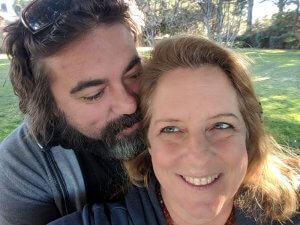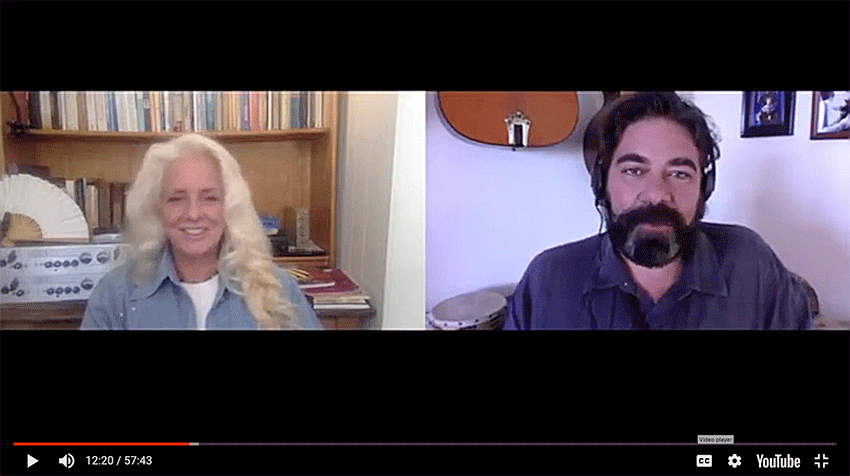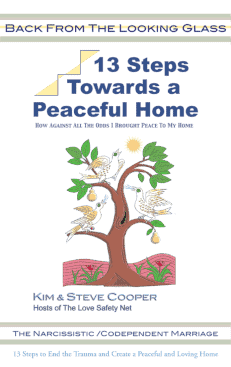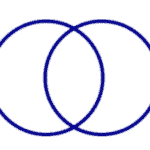Don’t risk it all in a marriage-counselling-title-match. Learn the truth of what may be causing the heart-ache and the fights
The Narcissistic Codependent Marriage—What You Need to Know
- Are You Treated Different in Private than in Public?
>>> Narcissism in Your Marriage Partner<<< - You Give Your Marriage Your Best, but it’s Never Enough?
>>> Signs of Your Codependence<<< - Your Relationship Has Become a Depressing Chore?
>>> Codependency in Your Marriage Partner<<< - You’re Anxious and Exhausted From Hiding Your Shame?
>>> Signs of Your Own Narcissism<<<
~Select any text on this page to see our share on Twitter and Facebook function~
At Home, do Either of These Roles Sound Like You?*
The Narcissist
- You feel pressure to earn fame and/or recognition.
- You are often shocked at what life expects of you and consider yourself a victim.
You idolise people/teams/groups you see as confident and successful. You have often faced a feeling of inner desolation/anger when your idols are conquered or you discover they are vulnerable or flawed.
Many people have disappointed you in life. You believe most people are stupid and not worthy of your compassion or respect. You long for a worthy opponent who can match you. Someone strong and intelligent who sees how special you are.
Despite any success you have achieved in life, your self-esteem swings between feeling superior, all-powerful and misunderstood, on the one hand, and fake and unworthy on the other. This imbalance is underpinned by a feeling of emptiness, negativity, hopelessness and inner-poverty that nothing will relieve.
- When something goes wrong:
even when you caused it, you immediately think of someone—or something—you can blame.
- When someone is critical of you:
you justify yourself by pointing out other people who behave the same or worse.

Despite the name-calling and sheer volume of misinformation online, narcissism is a very common way of thinking and behaving.
In its most simple description, narcissism is about being self-centred, this is something we must obviously look at if we expect our marriage to ever improve.
Narcissism, however, is not about loving ourselves.
Unhealthy narcissism is instead about loving a fantasy idea of ourselves. A fantasy that won’t allow us to accept our mistakes and grow as a real person. Hanging onto this fantasy will never allow us to be loved for who we truly are.
Do you crave love admiration and respect, even from strangers? Are you trying to fill a bottomless well?
Narcissism is much easier to spot in others than it is to spot in ourselves.
The Codependent
- You feel expected to keep everyone happy and keep the peace.
- You give your marriage your best—but even though your partner makes little effort—your best is never enough.
You long for a hero to rescue you, and to care for your deep unmet emotional needs.
You crave understanding and support, from people who have shown you clearly that they only truly care about themselves.
You have often found yourself in a place where selfish uncaring people end up dominating your life.
You believe you are genuinely loving and caring, but feel unappreciated and sometimes angry that no one cares about you or your needs. This lack of support holds you back in many ways.
You experience severe and prolonged episodes of self-doubt, alongside a nagging unassailable sense of shame that perhaps you are not the good person you believe that you are.
- When something goes wrong:
no matter who or what caused the problem, you feel guilty and often blame yourself.
- If someone is critical of you:
you become emotional and cannot relax until the critical person is happy with you again.
Codependency is based on the dangerous myth that romantic love will heal all of our insecurity and fear.
While it describes a person who spends a large part of their life trying to keep people happy, codependency is not about truly loving someone else. It is loving in the hope of getting your own immature emotional needs met in return. Codependency works subconsciously to create an emotional debt.
Just as common as narcissism, codependency can, likewise, cause serious damage to your marriage.
A codependent’s thoughts and plans are centred on their partner.
To create a happy marriage; alongside the needs of the people around us, we must be centred on our own needs. Being other-centred in this way can be just as difficult to live with as being self-centred.
Join Steve’s list—for men—a family leadership challenge:
Learn the 3 bad habits—most codependents do every day—that will eventually destroy your marriage:
Are Narcissism & Codependency Destroying Your Marriage?
Is your marriage full of hurt, hard feelings, anger and disappointment: with little room left for love?
Codependency and Marriage
We often use the term Emotional Dependence rather than codependency because, unlike complicated psychology; it explains the problem more simply.
It’s wonderful to be loved and appreciated. Emotional Dependence and Marriage, however, are a disastrous mix. Needing someone’s love and approval to feel good about yourself and that you need to “fix things” every time your partner feels angry or upset, will soon make married life with you into a chore.
Narcissism and Marriage
Narcissism and marriage are an even worse combination. Because the narcissistic outlook on life is so different, people with narcissistic tendencies won’t appreciate the way their codependent spouse goes about getting his or her emotional needs met. In love with the idea of being loved and adored, if this person sees that their marriage partner is unhappy, the narcissist will seek love and approval outside the marriage and treat other people much better than their spouse.
Narcissism and codependency are patterns of behaviour that cause family dysfunction. They will cause chaos and disappointment in marriage and eventually destroy love.
Many of us learned these patterns of behaviour growing up.
Narcissistic/codependent marriages are more common than you might think.
A narcissistic/codependent marriage does not mean your marriage must end. This website is the portal to help you end the conflict and also help you find support.
~Select any text on this page to see our share on Twitter and Facebook function~
Learn More About the Signs of Narcissism and Signs of Codependency in Your Marriage:
Narcissism In Your Marriage Partner
Do you live with someone who puts you down and insults you? If so we want to help bring peace and security to your home. Read More . . .

Selfish Reasons to Look at Your Narcissism
The games narcissistic personality types play can be tiring. Giving up the game allows for new paths. Read More . . .

Narcissism and Sex
Each new admirer becomes ‘the one’ special person whose attention you crave, but like a mirage, in a short time the illusion fades. Read More . . .

Codependency In Your Marriage Partner
Does your partner always want to talk about your relationship when you would rather be doing something else? Check for signs of codependency in your marriage. Read More . . .

Codpendency In Yourself
Signs of Codependency in yourself in your marriage Read More . . .

Please Talk to Me
A marriage partner not wanting to talk is the most common complaint I hear. Read More . . .

Groomed for Heartache
What Codependence is and what it is not. Read More . . .

Narcissism & Codependency are learned family roles; they represent opposing views on life that will cause conflict, chaos and disappointment, eventually destroying love & companionship.
Kim Cooper - Author of Back from the Looking Glass
 * Please note that most people have a mixture of narcissistic and codependent tendencies. Many men, for instance, will play the narcissistic role at home while acting co-dependently at work. Our aim here is to help you identify the patterns, not diagnose yourself or someone else.
* Please note that most people have a mixture of narcissistic and codependent tendencies. Many men, for instance, will play the narcissistic role at home while acting co-dependently at work. Our aim here is to help you identify the patterns, not diagnose yourself or someone else.
You should also note that in most cases our team have found these labels stereotypes that do not represent the real person. Despite the pain and suffering these mindsets undoubtedly cause; our experience has shown them to be learned behaviour and NOT incurable psychiatric conditions.
Couples can certainly outgrow narcissism and codependence as our story and work both demonstrate.
Join Steve’s list—for men—a family leadership challenge:
Learn the 3 bad habits—most codependents do every day—that will eventually destroy your marriage:








